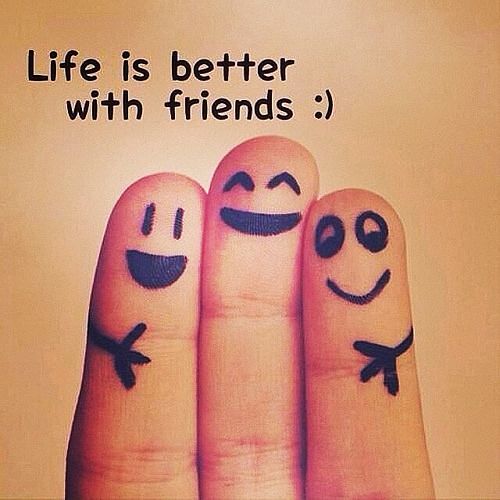Interpersonal relationships go beyond just associating. You should define every relationship you have. No one exists alone without associating.
An interpersonal relationship or relationship is a connection between two persons or a wide range of people. Interpersonal relationships have their importance. Your connection with people can positively or negatively impact your life.
Most Nigerians often misconstrue “being in a relationship” to mean a romantic relationship. This is why you hardly see people being friends, and it’s often seen as a give and take system. One key factor determining the kind of relationship you share with people is closeness. We have other factors, which include:
- Fondness
- Understanding
- Honestly
- Respect
- Acceptance
- Care
- Support
For an interpersonal relationship to last, you must put in the effort to build it. No relationship is perfect. Disagreement is bound to occur. There will be some compromises, respect for boundaries and most importantly, to maintain an interpersonal relationship, communication is vital. Interpersonal relationships are nurtured with time.
The length and intensity of every relationship vary. Your relationship with friend A might not be the same with friend B. Generally, we humans differ from one another; there is always uniqueness in every association, even amongst animals.
Table of Contents
5 Stages of Interpersonal Relationships
Every interpersonal relationship is encountered in different stages. The end stage of one relationship might be the beginning of another.

A relationship should have a solid foundation
-
Acquaintance
This is the first stage of building a relationship. You meet a person first before any connection. At this point, you are just acquainted with the person. A person you meet for the first time isn’t a friend yet.
There isn’t any closeness between you. Some relationships end at this stage, for example, your neighbour(s). Not everyone is close with their neighbours.
The only association they have is the exchange of pleasantries. Friends of friends are also associations that don’t leave this stage. Trust me, you can’t make friends in a “face me I slap you house.” Everyone minds their business. Nigeria has a popular motto for that “On Your Own” (OYO).
-
Build-up
At this stage, you must have had a connection or vibe with the person then gradually, an interpersonal relationship builds up. This why we have the talking stage. It’s either you succeed at this stage or not.
-
Continuation
The relationship advances, and there is now a level of closeness. You must have observed characteristics that want you to go further with the relationship. There is a thin line between the duration of the relationship and the end at this stage.
-
Deterioration
Here, the relationship starts to crumble. Fights and unbearing situations arise. Affection and closeness reduce. This is where one party starts to “ghost.” No more “have you eaten?” “what did you do today?”
-
Ending
At this point, there is no longer a relationship. The interpersonal relationship has been destroyed. It could be for various reasons.
Not all relationships crumble. Some last like forever. The foundation of every relationship matters a lot. It is most times the determinant of the duration of your relationship.
Burna Boy sang in his biggest single:
Last Last
Na everybody go chop breakfast
Your friendship with a person can end unexpectedly if it isn’t strong. So to avoid breakfast, form a strong relationship with people because it can affect you emotionally.
Read Also: 7 Important Qualities of A Healthy Relationship
Types of Interpersonal Relationships
We have different types of relationships, each of which has its uniqueness. Some relationships exist to give you support, strength and peace of mind. Such a relationship is a healthy interpersonal relationship. You should stay away from relationships that hurt you.

Life is better with friends
Always remember that in all situations, your life matters more. Some of the types of interpersonal relationships include:
-
Family
This is the first relationship you form. The family includes your direct nuclear family, extended family members or guardians. Most relationships among family members tend to exist for a lifetime, while some do not occur for various reasons. Individually we hold different values and perceptions about things.
Having an entirely different view about specific issues can drift your relationship with some family members. Cases like these are common in Nigeria, where you have family members against you getting married to your partner because of religious differences. Nevertheless, family relationships are one the relationships that exist for a lifetime.
Your family members will be the most annoying people in your life, but that is where you learn the importance of a relationship.
-
Co-Dependent Relationship
This exists in all relationships. This is a relationship where one depends more on the other financially, emotionally and so on. It could be a mutual one where they both take turns in supporting each other. In this type of relationship, the giver or caregiver endures a lot.
You might have to do things you are not comfortable with to please the other and avoid conflict. The severity of the dependency is not the same for every relationship.
-
Friendship
This is a beautiful relationship one can ever have but not always that way for some people. Friends bring out different aspects of you. Some friendships do not last long, while some last for a lifetime.
Some people value friendship more than family. True friendship is meant to be supportive, caring, enduring and loving.
Read Also: RELATIONSHIP BOUNDARIES: THE HOW AND WHEN TO SET BOUNDERIES FOR YOUR RELATIONSHIP
-
Romantic relationship
This involves feelings. You can love your friends, family members and people around you, but when you are in love with someone, that results in a romantic interpersonal relationship. Love for your friends and partner varies. How you express your love for people also varies.
For content like this, subscribe to our YouTube Channel to catch the videos on lifestyle and relationships.
-
Toxic Relationship
This type of relationship is detrimental to one’s health. A relationship that threatens you emotionally, physically or mentally is toxic. You can find this in any relationship.
Studies show that stress from toxic relationships affects cardiovascular health. Some signs of a toxic relationship include: gaslighting, passive-aggressive behaviours, stress, controlling behaviours, disrespect, hostility, lack of support and so on.
If you find yourself in a toxic relationship, create boundaries or leave—your health and life matter. The support and peace of mind you get from a relationship show the importance of interpersonal relationships. So make sure you stay in a healthy relationship.
-
Work Relationship
You will have different relationships you keep in your workplace. Your relationship with your boss will differ from that with your colleagues. Always maintain a balance between your personal and professional life. Be professional in all you do at work.
-
Social Relationship
This entails various types of relationships you keep with people. For example, social relationships keep you lively and happy most of the time. An example of a social relationship is formed when you meet people for outdoor games.
-
Religious Relationship
This is a relationship you keep with people in your place of worship. For example, you can have a relationship with a chorister in your church or an Alfa in your mosque. It could be for spiritual growth or guidance (you know, Nigerians like their religion).
-
Casual Relationship
This is a relationship you share with shop owners around you, your hair stylist and so on. Nigerians are fond of this type of relationship, especially men. They can greet each other for months and not know their names. You know the relationship you keep with your hairstylist is “off and on,” you only speak to them when you want to get your hair done.
-
Relationship With Yourself
This is the most important relationship. Your relationship with others can only strive well when you keep a good one with yourself. Treat yourself well. Treat yourself the way you want to be treated. Self-care is important. Value yourself. Be confident in yourself and appreciate who you are.
Read Also: How to know a supportive friend
Healthy Relationship Habits
- Always be respectful
- Be trustworthy and honest
- Put effort into maintaining a healthy relationship
- Listen well
- Do not be quick to judge
- Communicate effectively
- Create and sustain boundaries
Importance of Interpersonal Relationship
- Interpersonal relationships are important to our mental well-being.
- They sometimes give us purpose in life.
- They make us grow. You should surround yourself with positive and supportive people.
Conclusion
Interpersonal relationships are important in one way or the other. No human can exist without associating. No matter the relationship you find yourself in, always ensure it is healthy.
We have a platform where you can form relationships with intelligent and wonderful people. Join our Whatsapp Community to start a relationship today!
About Author
- I'm currently a microbiology student at a Nigerian university. In addition, I'm a content writer and freelance writer. I love to make my write-ups captivating and helpful to my readers.
Latest entries
 LifestyleJanuary 10, 2023Amazing Health Benefits of Alligator Pepper for Nigerians
LifestyleJanuary 10, 2023Amazing Health Benefits of Alligator Pepper for Nigerians LifestyleAugust 11, 2022Insights on Interpersonal Relationships for Nigerians
LifestyleAugust 11, 2022Insights on Interpersonal Relationships for Nigerians LifestyleJuly 19, 2022Popular Habits Of Highly Successful People
LifestyleJuly 19, 2022Popular Habits Of Highly Successful People LifestyleJune 30, 202210 Ways to Build Confidence as a Young Nigerian
LifestyleJune 30, 202210 Ways to Build Confidence as a Young Nigerian

